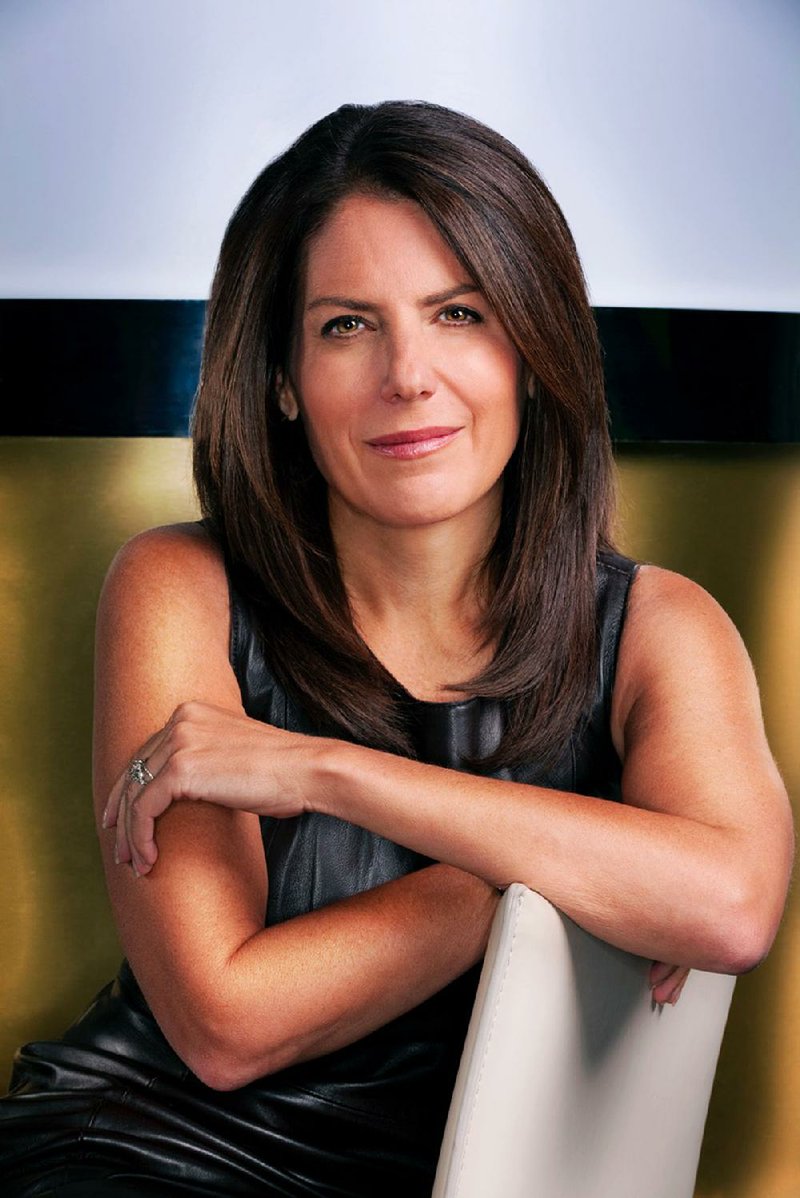Jean Chatzky, the longtime financial editor for NBC's Today Show and a personal finance editor for 25 years, wrote the handbook Money Rules: The Simple Path to Lifelong Security in 2012.
After paring down her own ideas and ideas from others, Chatzky included 94 rules people should apply to their financial lives.
The list included: "Live below your means. Period."
"Emergencies happen."
"Don't cosign."
"The harder the sell, the faster you should run."
But her favorite, Chatzky said in a recent telephone interview, is "Hope is not an investment strategy."
Chatzky will be in Little Rock to discuss investment options other than hope at the Senior Expo on Saturday at the Statehouse Convention Center. The Expo is presented by the Arkansas Democrat-Gazette.
The event is free and runs from 9 a.m. to 2 p.m. She will speak at 11 a.m. She'll also have a session on avoiding scams, Chatzky said.
Senior citizens near or at retirement age who have not saved enough to last through retirement ought to first assess their finances, Chatzky said.
"Thinking that you might not have enough [money] is different than knowing what you've got and when it will come in and how Social Security will supplement that," Chatzky said. "So figuring out the lay of the land is a really good step one. If you need help doing it, it's a good time to see a financial adviser. Even if you're seeing them as a one or two time appointment and not an ongoing thing."
A senior citizen in such a situation needs to figure out how to afford to live on a low income "in a way that will enable your money to last as long as possible," Chatzky said.
"There are a lot of different strategies that play into that," she said. "That includes when you decide to take Social Security -- whether you begin it at age 62 or you wait until age 70 or somewhere in between. How and when you start pulling your money out of your retirement account. When and how you supplement your income by continuing to work. Figuring out where you are and how to get where you want to go is the first step."
There are only so many things a person with a small retirement fund can do, said Bob Williams, senior vice president and managing director of Simmons First Investment Group Inc. in Little Rock.
"You either have to continue to work and find ways to fund additional retirement money, or you can drastically reduce your expenses," Williams said in a phone interview. "All you can do is try to set aside as much as you can possibly afford to set aside right now."
One major investment firm recommends a retirement savings total of 10 times a retiree's annual income.
"That's a good ballpark to be in," Chatzky said. "But if you're not there -- and a lot of people are not there -- there are ways to deal with it. There are two sides to the equation."
That includes adjusting spending by shrinking your lifestyle, possibly by moving or making other decisions that reduce your cost of living, Chatzky said.
"Or you increase the income side of the equation," she said. "It could be by working, or it could be by adjusting your investment strategy. Or by renting out a room in your house. There are a number of ways to go about it."
How much a retiree should have in a retirement fund "varies so widely from individual to individual," Williams said.
"It's hard to give a pat answer to that," Williams said. "Is your home already paid for? If you don't have a mortgage, that will drastically change your cash flow. What's your health insurance going to cost?"
A reverse mortgage can be a viable strategy for retirees, Chatzky said, but she warned that it can be an expensive strategy.
"The fees associated with getting a reverse mortgage are considerable," Chatzky said. "It's not something that you want to enter into without thinking about it and understanding what you're doing. Reverse mortgages are better than they used to be, and they are an alternative for some people."
In Little Rock, Chatzky will discuss some of her money rules for living in retirement.
"And I'll focus on protecting the life you've accumulated," Chatzky said. "And making sure that you're coloring in the lines when it comes to your spending habits and the amount of debt you're taking on. And strategies for earning a little bit of extra money. And how to be resilient financially."
In times of economic uncertainty, it's important to have the right attitude and understand there are ways to recover from small setbacks, Chatzky said.
Those in their 50s who haven't gotten far with a retirement plan are actually fortunate, Chatzky said.
"You've still got time to strategize, to save considerably more and spend less and put that money to work," Chatzky said. "That may sound incredibly simplistic, but that's really what it's all about."
In addition to writing at least seven books, Chatzky also has started a free weekly podcast for women called HerMoney. The podcast can be accessed through iTunes, Soundcloud or Stitcher, Chatzky said.
SundayMonday Business on 09/18/2016
